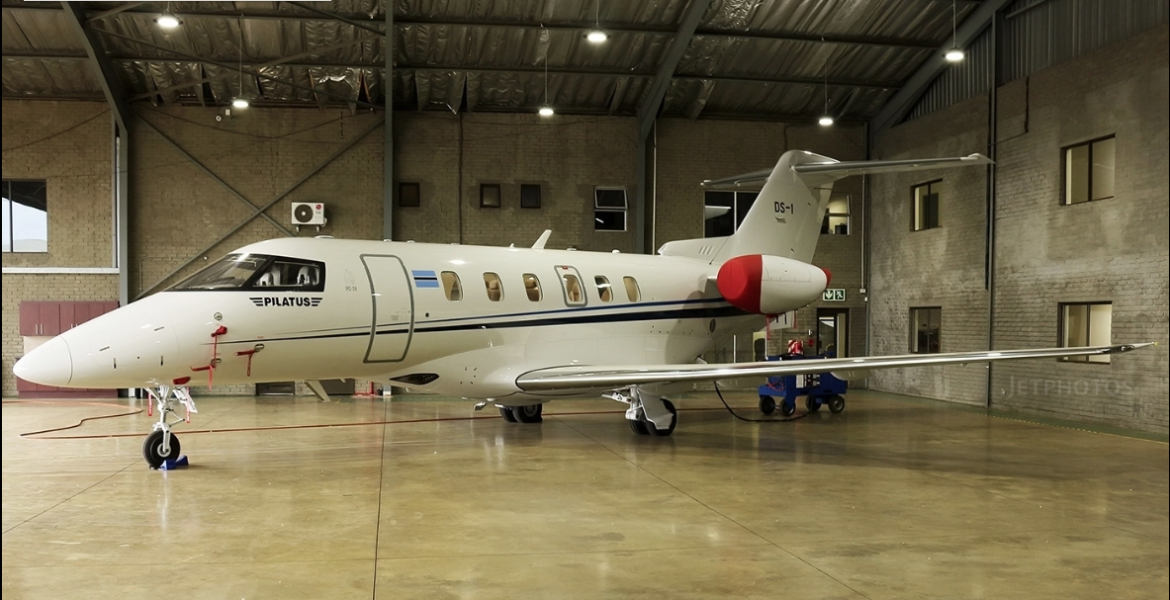Investigations have shown that one of the Chief Pilots who currently flies President Masisi, cabinet ministers and other VIPs failed training courses in the US. However, he and others who failed alongside him kept this fact from the secret service but the head of DIS is aware of this dangerous reality nevertheless
GAZETTE REPORTERS
The current Chief Pilot at the Directorate of Intelligence and Security (names known to this publication) reportedly failed a pilatus PC24 type rating but continues to fly President Mokgweetsi Masisi and other VIPs.
The Chief Pilot underwent a course at Flight Safety International in the United States in 2019 alongside two colleagues but they allegedly all failed.
Investigations allege that the Chief Pilot, his predecessor who is now with Debswana and another pilot who was sent by DIS on behalf of the Civil Aviation Authority Botswana (CAAB) were unsuccessful but they did not disclose this fact to their employers. “They never disclosed to the organisation that they failed, effectively clearing themselves to fly as Pilot in Command (PIC) on the PC24,” alleged a confidential source.
“The current Chief Pilot was further sent to the USA for an Airline Transport Pilot Licence (ATPL) course but again failed. He continues to fly as PIC, which is dangerous. This was also never disclosed to the insurer, AON, despite a requirement for crew to pass Type Rating Course on a full flight simulator.”
A formal request by the current Chief Pilot indicates that the PC24 aircraft is considerably complex and requires at an ATPL to fly as Pilot in Command, which is also in accordance with organisational policy.
Investigations allege that the request was acceded to by the previous Chief Pilot after they both completed a PC24 Type Rating Course in USA early 2019. The previous Chief Pilot had an ATPL qualification which automatically qualified him as PIC. This would also to satisfy an obligation with the insurer, AON, which required that both pilots hold a valid type rating on the PC24 with annual recurrent training.
“Unfortunately, nothing could be further from the truth as neither of them holds a valid type rating on the PC24, having failed the course,” alleged the source. “In addition, the current Chief Pilot dismally failed his ATPL course.”
Afterwards, apparently this set off a chain of events that resulted in failure to comply with International Safety Standards and Recommended Procedures (ISARPs), of which Botswana is a signatory through its safety Management System (SMS) programme.
“In fact, a Director of Flight Safety at CAAB was also sponsored to undergo a PC24 Type Rating course by DIS but did not sound the alarm due to fear and embarrassment because he too had failed the course,” the information seen alleges.
These serious discrepancies were discovered by the current DIS Air Wing Director who was appointed early 2021 who raised them as flight safety concerns in a written correspondence in which he also requested the pilots’ retraining. “These unqualified pilots continue to fly Head of State, Vice President, ministers and other several VIPs,” he wrote.
In another hair-raising development, DIS has duped the insurer into believing that one Raymond Steyn, holds a valid ATPL qualification and PC24 Type Rating, is its full-time employee. DIS included Steyn on its list of pilots in order to satisfy insurance obligations. As it turns out, Steyn is a director at Pilatus Southern Africa and not an employee of the secret service. “All the failures of these pilots are kept secret but it is alleged that the Director General of DIS, Peter Magosi, is aware of them.”
But South Africa-based Flight Safety International Regional Sales Manager, Tracey Eloff, would not say much for fear of flouting General Data Protection Regulation (GDPR) and Data Protection policies that prohibit sharing any personal or propriety information with third parties.
Similarly, at DIS spokesman Edward Robert said such information is privileged and cannot be shared. “We have standards to adhere to when we deploy our resources and we cannot compromise such standards,” Robert said.

